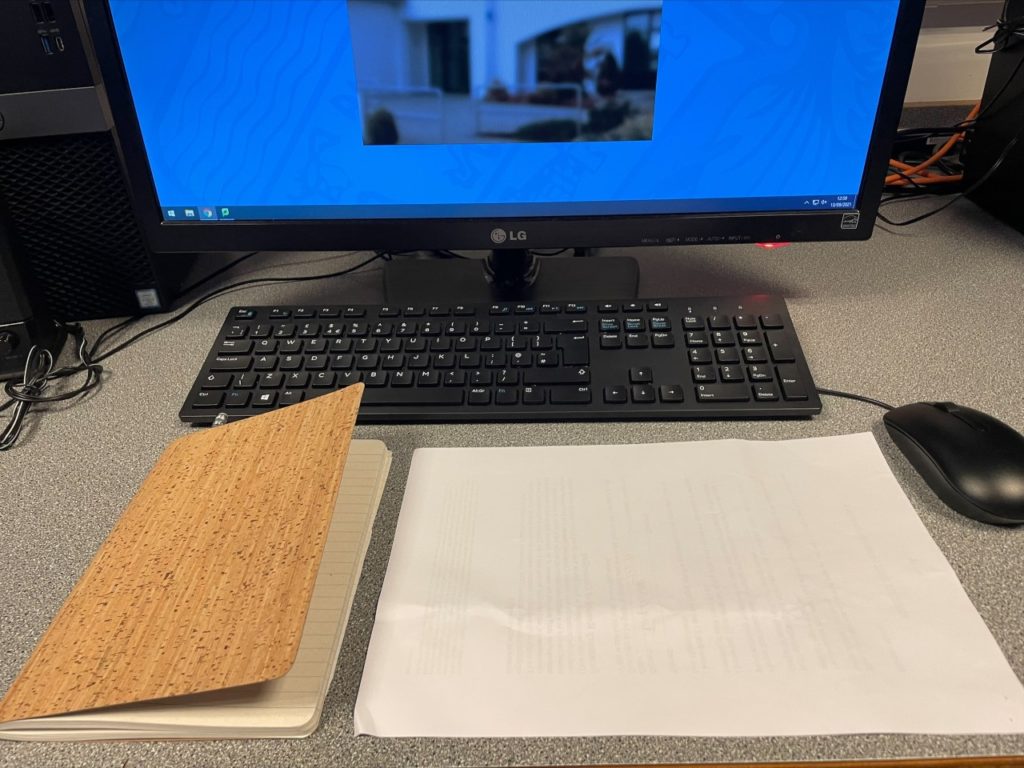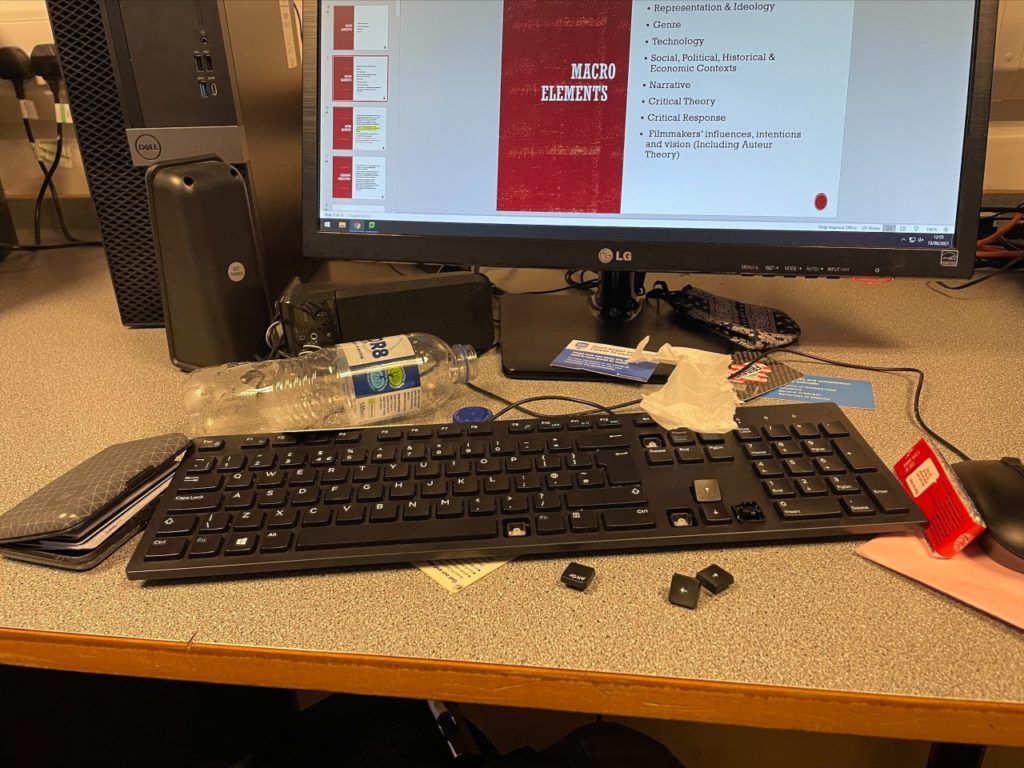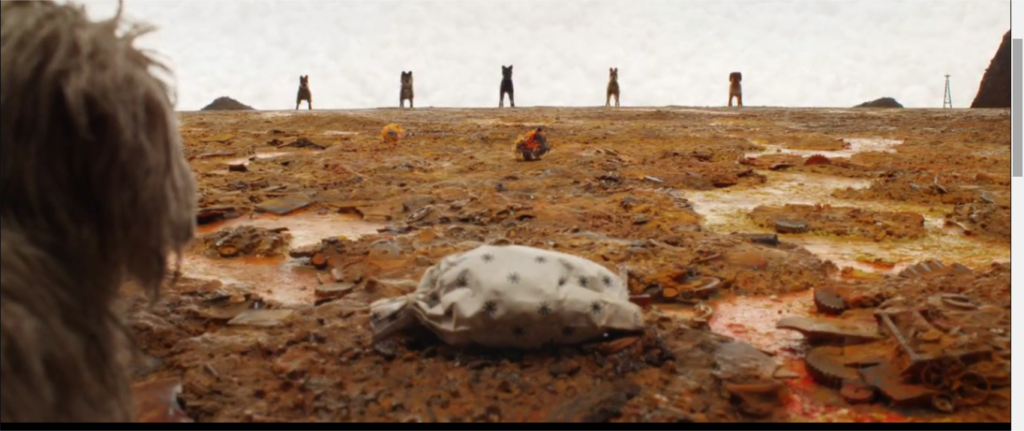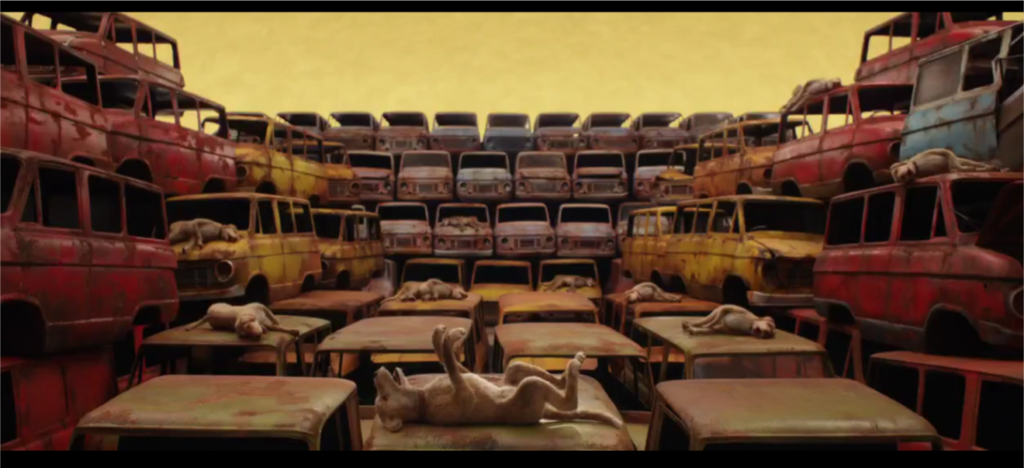



The spectrum of the arts places the different forms of art into one of three categories based on how tangible they are to an audience.
The Performance Arts are showing ideas to an audience in real time, examples of this include live theatre, music, or dance.
The Representational Arts share information to an audience through tangible objects, examples include paintings, graphic novels and drawings.
The Recording Arts communicate to an audience after a delay due to production or editing, examples include films, produced music, and most television shows.
The Performance Arts: Happens in real time such as live theatre i.e: Broadway shows

The Representational Arts: Conveys information about the subject to the observer by through literature and pictures such as comic books, manga and story books

The Recording Arts: Provides a direct path between the subject and the observer but are more direct than representational arts such as music and film

These categories can be blurred together due to the technological advances that humanity has made. A good example of this would be ‘Heathers’.
It was originally a film that got turned into a musical and later on into a tv show. This blurred the boundaries between the 3 different types of art as it’s been changed form a screenplay into a live action piece therefore mixing both the recording arts and the performance arts.
There are three main forms of art. The performance arts, the representational arts and the recording arts.
The Performance Arts – Something happening and being shown to a live audience in real time. A few examples of this are dance, music or acting.

The Representational Arts – will always be a tangible object. For example a book, paining or a sculpture.

The Recording Arts – When something has been recorded, such as a piece of music or a scene for a movie. These clips have then been edited and altered for them to be shown to an audience.

What makes a good film?
Whether or not a film is good or bad is subjective, many different factors go into a good film but to me a good film has compelling characters with an interesting and unique story line usually filled with suspense, a twist or excitement of any kind so views don’t get bored or confused. Cinematography plays a big part in films as it works as a visual guide for the audience by leading them through events in a certain way to convey emotions, relationships and a variety of important information about the scene, it’s also used to portray the overall mood and aesthetic of a film such as in Fantastic Mr Fox (Wes Anderson, 2009) were Andersons uses symmetry along with the specific warm colour palette to make this film a stunning and charming reimagining of a childhood favourite.
The sound in a film is just as important as the visuals on the screen because it informs us and moves us in ways visuals can’t, and because certain combinations of sound and visuals can evoke what neither can do alone. It can immerse the audience in a unique world to help create emotion, provide depth, establish characters and set the tone of the film as well as move the storyline along, a good example of this is Baby Driver (Edgar Wright, 2017) because when a song plays it is supported by every component of the film and every shot works alongside the soundtrack.
Editing is a vital aspect of storytelling in film, it involves choosing and combining film footage to create a complete story, it allows the film to constantly flow from scene to scene at the right pace in the right order, if the movie is choppy or in the wrong order it makes it harder to understand what is happening in the scene, it’s the editors job to ensure that the audience understand what message the director is trying to convey through different aspects such as music or dialogue, it makes the audience feel connected to the scene and as if they’re actually there with the characters. A good example of editing making a film good is Inception (Christopher Nolan, 2010) where parallel editing is used when two separate scenes in different locations are edited to make it appear that they are unfolding at the same time, adding suspense, and making this complex film feel more fluid and easier to understand.
Mise En Scene is the way actors and props are arranged in front of the camera. This contributes to the visual presentation and overall look of the film. It’s important as everything the views see has been carefully chosen and placed in the scene for a reason, key element of Mise En Scene are props, setting, costumes and makeup, lighting and so on. When properly used mise En scene creates a sense of place for the audience whether they realize it or not.
Many of these films are from famous franchises with big budgets and a well known, many people watch for these famous cast members and predictable storylines that usually play a big part in franchises, these films are mainly action themed or animated family films with a large cult following.
Mise-En-Scene is the setting of a scene in a film, it refers to to everything placed in the shot including people and props along with cinematography, lighting, props and sound.
The film ‘isle of dogs’ (Wes Anderson 2018) uses mise en scene in my opinion excellently throughout this movie Wes Anderson uses stop motion similarly to the film ‘fantastic Mr fox’. Wes Anderson uses props placed well throughout the scene for example throughout the movie placing subtle cats where the antagonist of the story is. (Because the heroes of the story are mostly dogs)It is these smalldetails that make this movie have such good mise en scene and add more meaning to the film.

In this shot the leader of this pack of dogs (chief) has his back turned to the audience he is also in the middle of the four dogs which show the audience that He’s in charge, Wes Anderson also uses a lot of symmetry in this shot it is to make the other four dogs look similar and make Chief look more like an outcast to the group, in this scene Chief is giving a pep talk to the other dogs.

The color palate used in trash island consist of browns whites and yellow colors this proves to the watcher how this island is rundown and not fitting for dogs to be living there, these beige colours contrast with the colour palate used in the human world. By using bold colours in this human world such as reds and yellows it has connotations with the audience of anger and makes the bland colour palate in trash island even more bland in comparison and makes the audience feel bad for the dogs.


The first introduction we see of the 5 main dogs is this entrance scene, by using symmetry in the horizon and the places that the dogs are standing this scene shows the main dogs we follow in the story as strong and threatening to the other dogs, this is reinforced by their names: Chief, Duke, Boss. This introduction scene shows to the audience that these characters are intimidating and strong. The murky water and orange/brown floor also shows how polluted and dirty this island is.

Even though trash island has a mainly beige and brown color palate Wes Anderson still adds different scenes with a different background to contrast with the beige and brown, and to show the characters moving to different places in trash island.

The term Mise-en-scene is the arrangement of everything in front of the camera such as the set design and the actors, also taking into account props, lighting, costume design, sound ect…
Mise-en-scene: A term used to describe the setting in a play or film. It refers to everything placed in front of the camera, including people.
– Masterclass.com